12 March 2025
Let’s be real for a second—anyone can mash buttons, but only a strategic genius can rule the leaderboards. Competitive gaming isn't just about flashy moves or insane reflexes (though they do help); it's about outsmarting and outplaying your opponents. You could have the deadliest aim in a first-person shooter or the fastest fingers in a real-time strategy (RTS) game, but if your gameplay lacks strategy, you may as well be running in circles, screaming, "Please, just shoot me already!"
So, what’s the deal with strategy? Why does it matter, and how can it take your competitive skills from meh to mind-blowing? Let’s dive headfirst into the world of competitive gaming strategy—because trust me, if you’re not playing smart, you’re not playing to win. 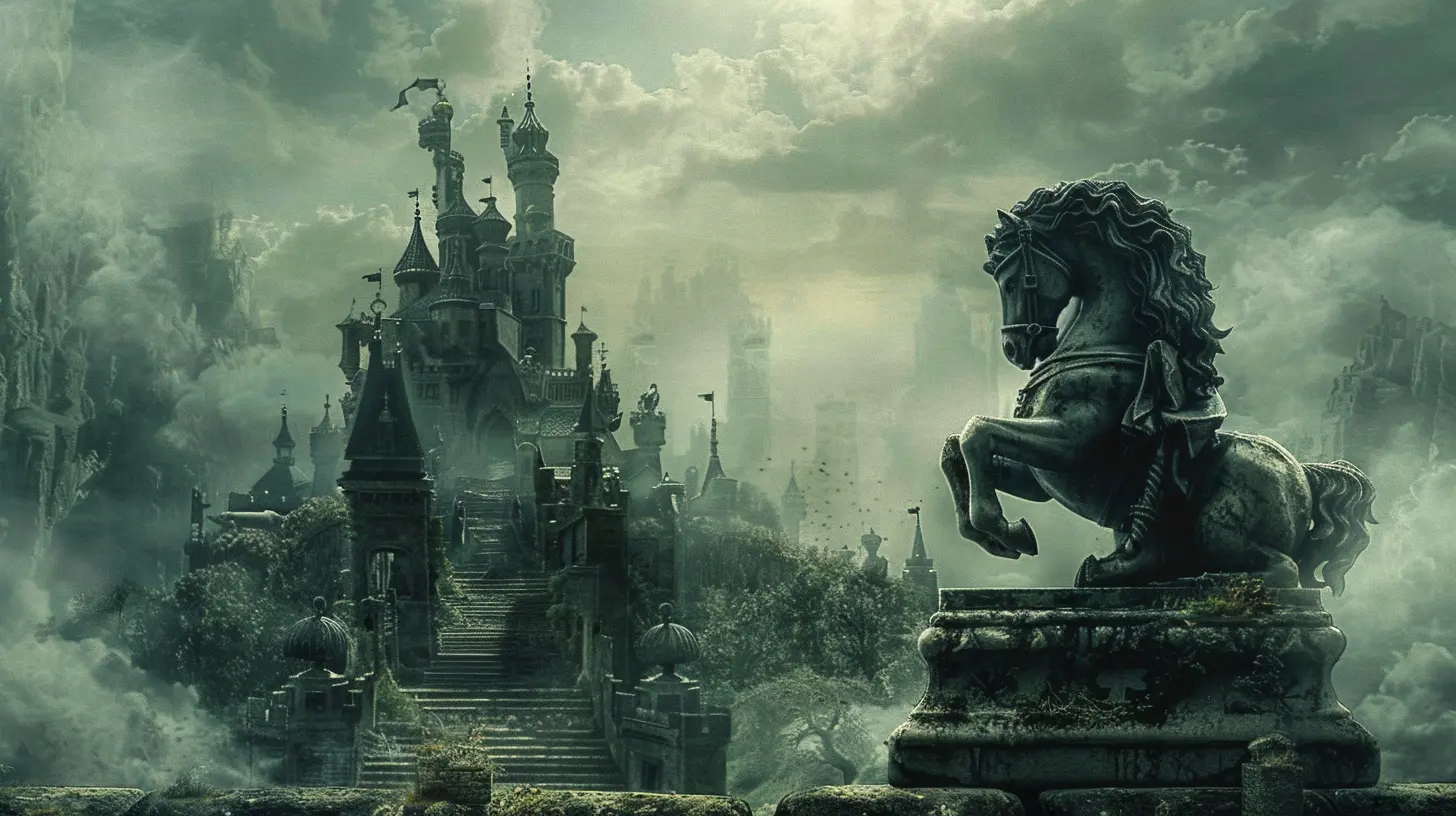
What Does Strategy Even Mean in Gaming?
First off, let’s get one thing clear: strategy isn’t just some fancy word for “trying really hard.” It’s about having a plan—a battle blueprint—and sticking to it (or adjusting it on the fly). In gaming, strategy encompasses everything from knowing the meta (we’ll get to that in a second) to predicting your opponent’s next move, like you’re some kind of esports psychic.Think of it like chess on steroids. Every move you make has ripple effects. You’re not just playing against your opponent’s skills; you’re playing against their mind. Are you five steps ahead, or are you stuck two steps behind? 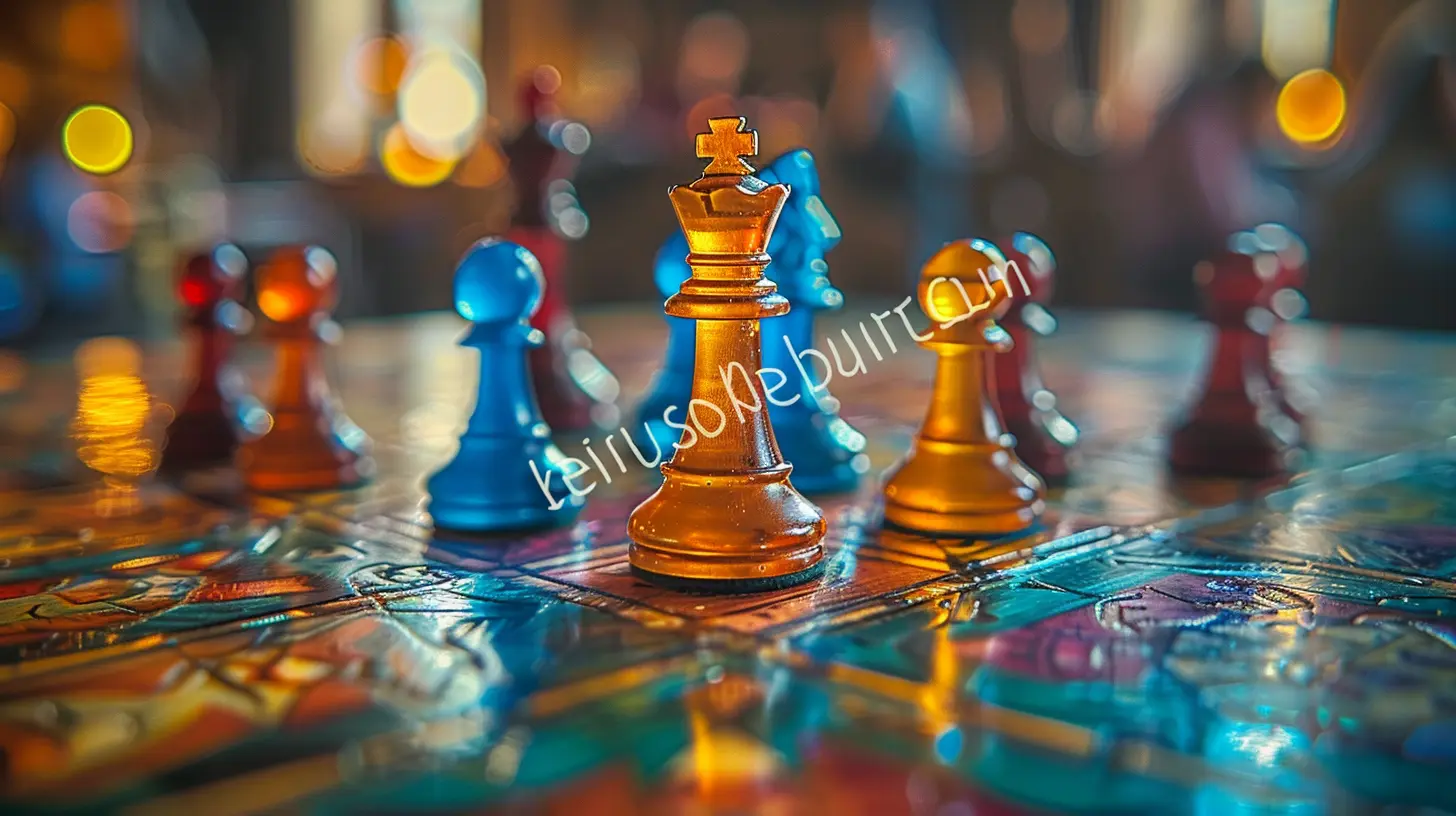
The Meta: Your Strategic Compass
Ah, the meta—a term that gets tossed around like confetti in the gaming world. If you’ve ever heard someone say, “That hero is OP in the current meta” or “This strategy isn’t meta right now,” and you nodded along like you totally understood, but secretly didn’t…welcome to the club.The meta (short for "metagame") basically refers to the most effective tactics available in a game at a given time. It’s constantly evolving because developers push out updates, nerfs, and buffs faster than you can reload your weapon. Keeping up with the meta is crucial because it’s like knowing the rules of an elite secret society—if you don't get it, you're not invited to the winner’s circle.
For example, in MOBAs (Multiplayer Online Battle Arenas) like League of Legends, the meta may favor tanky champions with crowd-control abilities one season, while the next season, speedy assassins who can one-shot their enemies dominate. Keeping tabs on the meta isn’t just for pros; even casual players can turn the tide by picking meta-friendly characters or weapons. 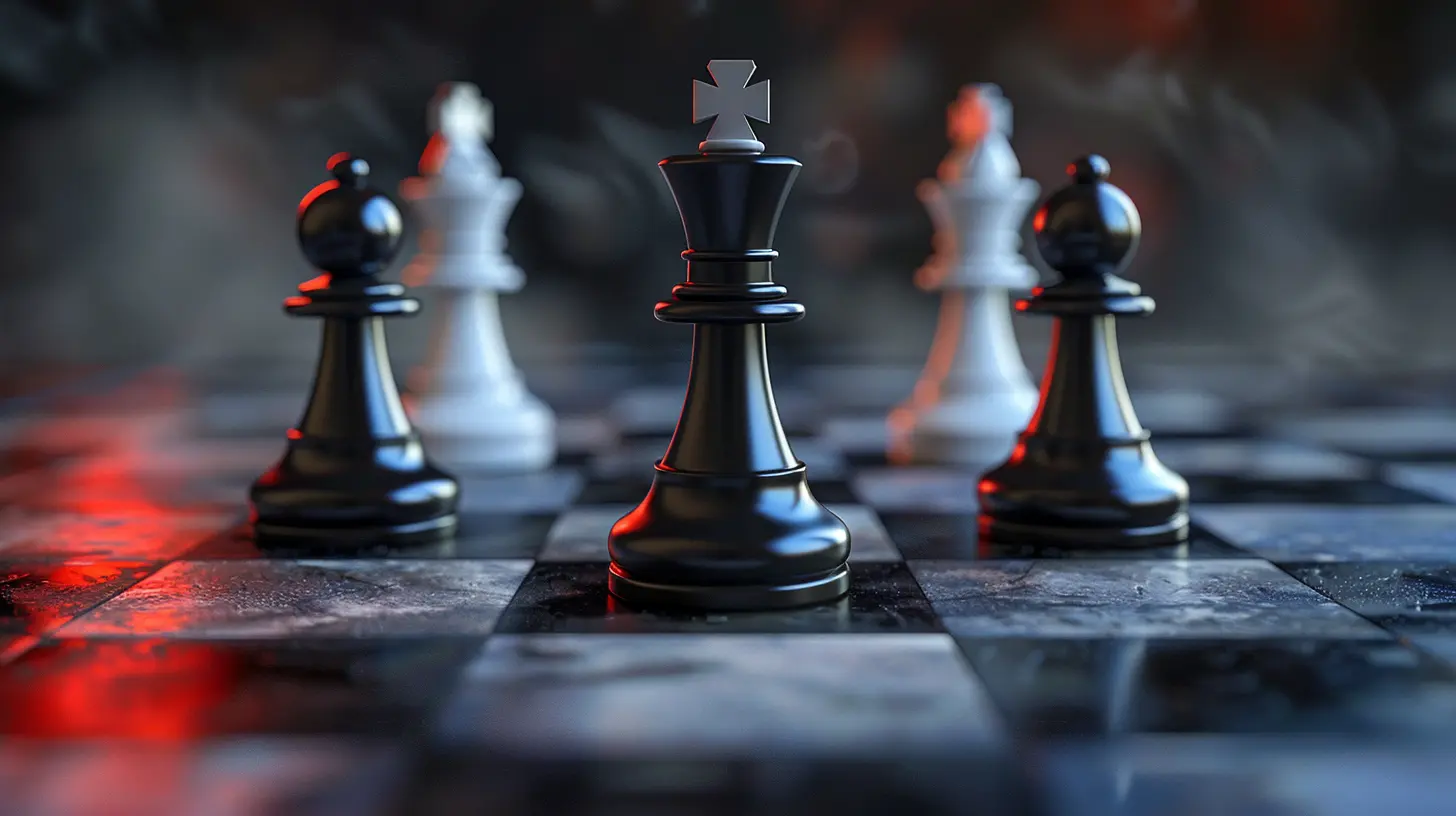
Why Reflexes Alone Don’t Cut It
Okay, so you’ve got lightning-fast reflexes. Congrats—you can probably catch a fly with chopsticks. But in competitive gaming, reflexes are only half the equation.Imagine you’re playing Call of Duty. You’ve got the drop on your opponent, they don’t see you, and you’re ready to fire. But wait—you didn’t check your surroundings. Their teammate flanks you, and suddenly you're looking at the "Game Over" screen. Where did you go wrong? Strategy, my friend.
Strategic players know where to position themselves, when to engage, and when to back off. Reflexes help in the heat of the moment, but strategy ensures you’re already in the best possible position before the fight even begins. It’s like playing poker—having skill is important, but knowing how to read the table? That’s how you take home the chips. 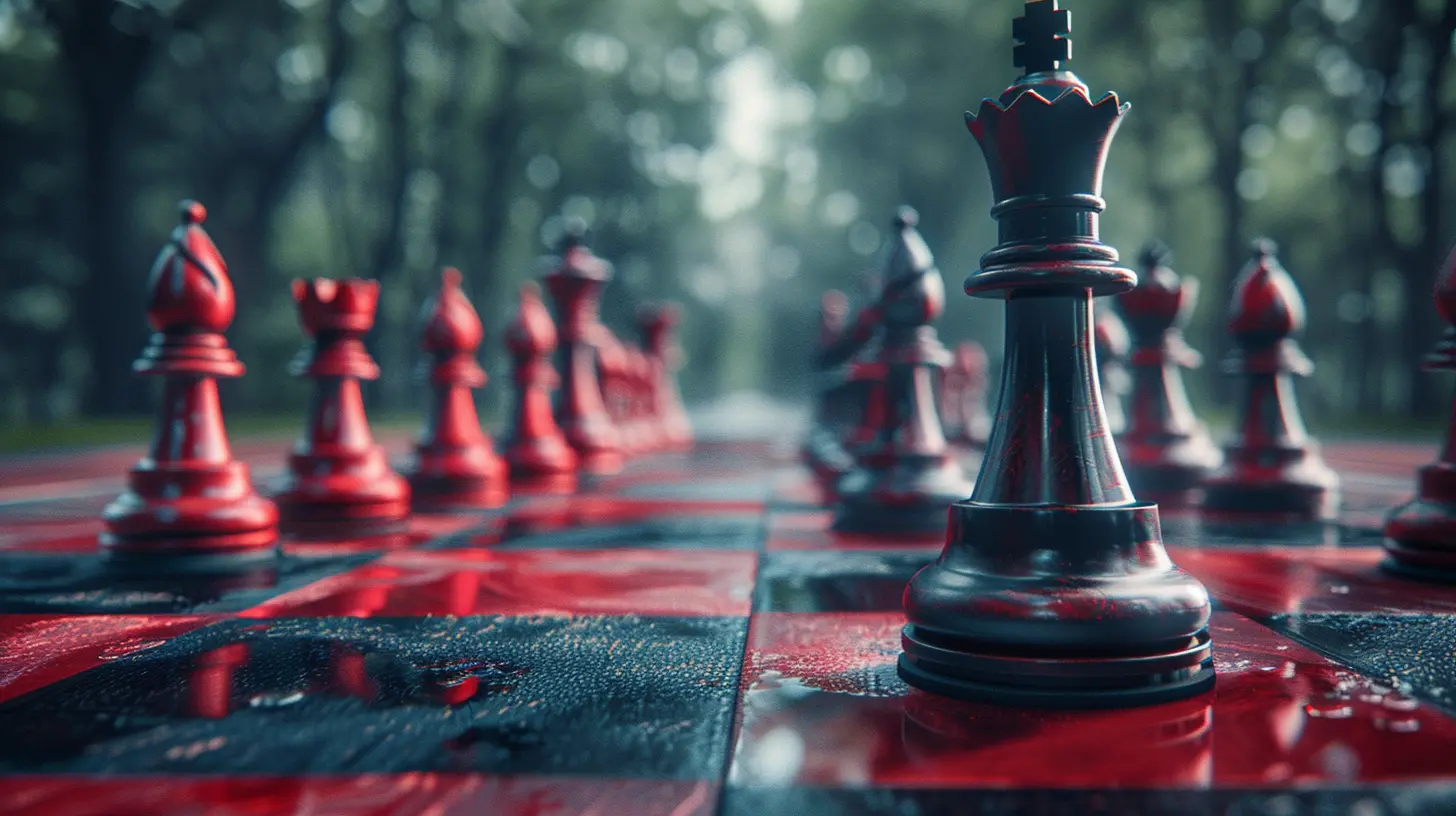
Key Elements of a Winning Strategy
Now that we’ve established that strategy is king, let’s break down the fundamental pieces that make it work.1. Map Knowledge
Every competitive game comes with its own unique terrain, and knowing your surroundings is half the battle. Whether you’re navigating the jungles of League of Legends or planning an ambush on Dust II in CS:GO, understanding the map gives you a significant edge.Think of maps as your playground. Where are the choke points, the high grounds, the blind corners? Where does the action usually go down? If you know these things better than your opponent, you can control the pace of the game.
Pro Tip: Memorize spawn points, high-traffic areas, and escape routes. This isn’t just map knowledge; it’s map domination.
2. Adaptability
Let’s get one thing straight—no strategy is foolproof. The best players are adaptable. If your original plan isn’t working, don’t be stubborn. Pivot faster than a ballerina in a tutu.Did the enemy team counter-pick your favorite hero? Are they consistently shutting down your lanes? Switch it up! Think of strategy like a recipe: if the soufflé falls flat, you bake a cake instead.
3. Game Sense
Game sense is that sixth sense you develop after hours of gameplay. It’s the ability to predict what’s going to happen before it actually does. Kind of like Spider-Man’s spidey senses, except instead of dodging Green Goblin, you're avoiding a sniper shot to the head.Game sense includes everything from knowing when enemies will respawn to recognizing bait tactics. You’ll develop it over time, but watching pro players or game replays can kickstart your internal gaming radar.
The Psychology of Outplaying Opponents
Here’s the thing: competitive gaming isn’t just a physical competition—it’s a mental one. If you can get into your opponent’s head, you’re already halfway to victory.Mind Games
Ever pretended to retreat, only to ambush your opponent when they chase you down? That’s a mind game. Good players exploit human behavior—greed, overconfidence, or hesitation. Make them doubt themselves, and they’ll start playing worse than a noob in their first match.Confidence Without Arrogance
Nobody wins by doubting every decision they make. You know what’s scary? A player who’s confident. (Not cocky—there’s a difference.) Confidence ensures you commit to your plays fully, instead of second-guessing yourself mid-action. That split-second hesitation? Yeah, it’ll get you killed.Case Studies of Strategy in Action
Let’s look at some iconic moments where strategy won games:The Shanghai Dragons - Overwatch League
Remember when the Shanghai Dragons broke their 0-42 losing streak? It wasn’t a fluke—they reworked their strategy completely. Instead of relying on individual skill, they focused on coordinating team fights and reacting to enemy plays. Result? They became one of the most feared teams in the league.OG Esports - Dota 2
OG winning The International not once, but twice, is a literal masterclass in adaptability. They often drafted unconventional team compositions and embraced chaotic, unpredictable plays that left their opponents scrambling to keep up.Can You Game Without Strategy?
Here’s the harsh truth: you can, but it’s like bringing a Nerf gun to a real-life warzone. You might get lucky once or twice, but long-term success? Forget about it.Gaming without strategy is like being the guy who shows up to a group project with no plan and expects everyone else to carry the slack. Spoiler alert: you’re gonna fail, and everyone’s going to blame you for it.
The Secret Sauce to Dominating Competitive Gaming
Want to dominate consistently? Here’s the deal:1. Do Your Homework: Research strategies, watch pros, and learn the meta.
2. Communicate: In team games, talk to your teammates! Even the best strategy fails without coordination.
3. Practice, Practice, Practice: Strategy is useless if you don’t have the skills to implement it.
And most importantly? Never stop learning. The best players aren’t the ones who win once; they’re the ones who keep evolving.
Conclusion
The role of strategy in competitive gaming isn’t some optional side quest—it’s the main storyline. Whether you’re climbing the ranks in Overwatch or clutching a 1v5 in Valorant, strategy is what separates the champions from the "better-luck-next-time" crowd.So, next time you log in, don’t just play harder—play smarter. Because in competitive gaming, brains truly beat brawn.


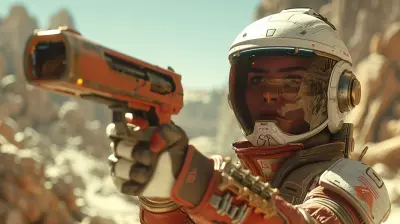




Vaughn Middleton
Strategize like a chess master, but with more snacks and fewer pawns!
March 23, 2025 at 3:58 PM